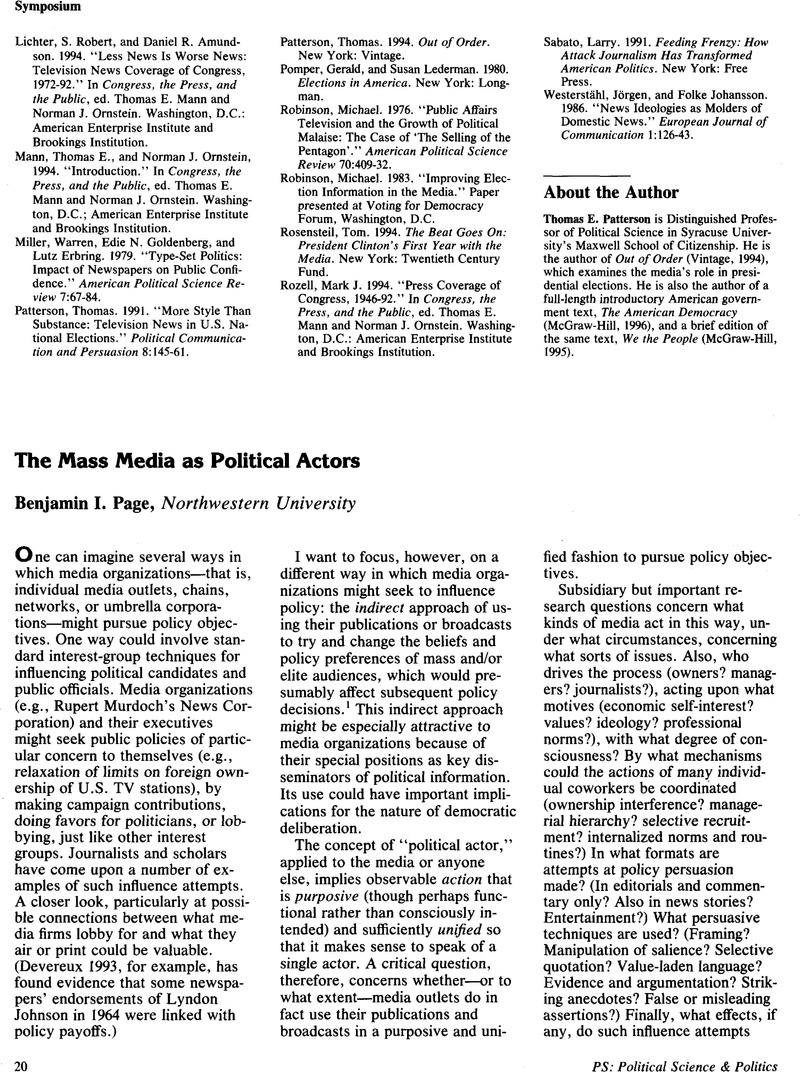Crossref Citations
This article has been cited by the following publications. This list is generated based on data provided by Crossref.
Eilders, Christiane
Neidhardt, Friedhelm
and
Pfetsch, Barbara
1997.
Machtkonzentration in der Multimediagesellschaft?.
p.
176.
Dörner, Christine
1998.
Politische Meinungsbildung und Wahlverhalten.
Vol. 84,
Issue. ,
p.
119.
Kowalewski, David
1999.
Censorship in the Japanese News Media: A Survey Report.
Asian Affairs: An American Review,
Vol. 26,
Issue. 1,
p.
43.
Eilders, Christiane
2000.
Publikums- und Wirkungsforschung.
p.
277.
Eilders, Christiane
2000.
Media as political actors? Issue focusing and selective emphasis in the German quality press.
German Politics,
Vol. 9,
Issue. 3,
p.
181.
Esser, Frank
2003.
Die Massenmedien im Wahlkampf.
p.
162.
Raupp, Juliana
2003.
Die Massenmedien im Wahlkampf.
p.
116.
Neidhardt, Friedhelm
Eilders, Christiane
and
Pfetsch, Barbara
2004.
Die Stimme der Medien.
p.
11.
Koopmans, Ruud
and
Pfetsch, Barbara
2006.
Obstacles or motors of Europeanization? German media and the transnationalization of public debate.
comm,
Vol. 31,
Issue. 2,
p.
115.
Erbe, Jessica
2006.
Europäische Öffentlichkeit und medialer Wandel.
p.
156.
Voltmer, Katrin
2008.
Massenmedien als politische Akteure.
p.
92.
Eilders, Christiane
2008.
Massenmedien als politische Akteure.
p.
27.
Reinemann, Carsten
2008.
Massenmedien als politische Akteure.
p.
196.
Pfetsch, Barbara
2008.
The International Encyclopedia of Communication.
Firmstone, Julie
2008.
THE EDITORIAL PRODUCTION PROCESS AND EDITORIAL VALUES AS INFLUENCES ON THE OPINIONS OF THE BRITISH PRESS TOWARDS EUROPE.
Journalism Practice,
Vol. 2,
Issue. 2,
p.
212.
Brettschneider, Frank
and
Wagner, Bettina
2008.
Massenmedien als politische Akteure.
p.
225.
Maurer, Torsten
Vogelgesang, Jens
Weiβ, Moritz
and
Weiβ, Hans-Jürgen
2008.
Massenmedien als politische Akteure.
p.
144.
Waldherr, Annie
2008.
Massenmedien als politische Akteure.
p.
171.
Pfetsch, Barbara
and
Adam, Silke
2008.
Massenmedien als politische Akteure.
p.
9.
Laubenthal, Barbara
2008.
Massenmedien als politische Akteure.
p.
266.



